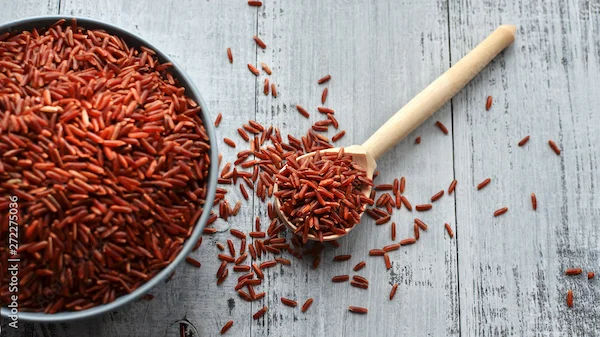Understanding Primary Immunodeficiency Disorders
Discover what Primary Immunodeficiency Disorders are, including causes, symptoms, diagnosis, and treatment options. Learn how these rare immune conditions affect health and daily living.

Written by Dr. Siri Nallapu
Reviewed by Dr. D Bhanu Prakash MBBS, AFIH, Advanced certificate in critical care medicine, Fellowship in critical care medicine
Last updated on 21st Aug, 2025

Primary Immunodeficiency Disorders (PIDs) are a group of rare conditions where the immune system doesn’t work as it should, making the body more vulnerable to infections, illnesses, and sometimes even autoimmune diseases. If you or a loved one has been diagnosed with a PID, it’s natural to have questions and concerns. This article will help you understand what PIDs are, their symptoms, causes, and how to manage them effectively.
What Are Primary Immunodeficiency Disorders?
Your immune system is your body’s defence mechanism against infections caused by bacteria, viruses, and other harmful germs. In people with Primary Immunodeficiency Disorders, this defence system is weakened or missing certain parts, making it harder to fight off infections. Unlike secondary immunodeficiency (which can be caused by factors like HIV, chemotherapy, or malnutrition), PIDs are usually genetic and present from birth, though symptoms may appear at any age.
Common Symptoms of Primary Immunodeficiency Disorders
People with PIDs often experience frequent, severe, or unusual infections that don’t respond well to standard treatments. Some common signs include:
Frequent infections: Repeated sinus infections, pneumonia, ear infections, or bronchitis.
Slow recovery: Infections that take longer to heal or require multiple rounds of antibiotics.
Unusual infections: Infections caused by organisms that don’t typically affect healthy people.
Digestive problems: Chronic diarrhoea, nausea, or poor weight gain in children.
Autoimmune issues: Conditions like rheumatoid arthritis or lupus may develop due to immune system malfunction.
Family history: If other family members have had similar immune-related problems, it could indicate a genetic link.
If you notice these symptoms, it’s important to consult a doctor for proper evaluation.
Consult Top Specialists
Causes of Primary Immunodeficiency Disorders
Most PIDs are caused by genetic mutations that affect how the immune system develops or functions. These mutations can be inherited from one or both parents or may occur spontaneously. There are over 400 different types of PIDs, each affecting different parts of the immune system. Some well-known types include:
Common Variable Immunodeficiency (CVID): Leads to low antibody levels.
Severe Combined Immunodeficiency (SCID): A life-threatening condition often called "bubble boy disease."
X-linked Agammaglobulinemia (XLA): Mostly affects males, causing very low antibody production.
Chronic Granulomatous Disease (CGD): Affects white blood cells' ability to fight infections.
How PIDs Affect Health?
Because the immune system is weakened, people with PIDs are at higher risk for:
Severe infections: Even common colds can lead to serious complications.
Organ damage: Repeated infections can harm the lungs, ears, or other organs over time.
Increased cancer risk: Some PIDs are linked to higher chances of developing certain cancers.
Autoimmune disorders: The immune system may mistakenly attack the body’s own tissues.
Early diagnosis and treatment can help manage these risks effectively.
Managing Primary Immunodeficiency Disorders
While there’s no cure for most PIDs, treatments can help strengthen the immune system and prevent infections. Management strategies include:
1. Medical Treatments
Immunoglobulin Replacement Therapy: Regular infusions of antibodies to help fight infections.
Antibiotics/Antivirals: Preventive or long-term medications to reduce infection risks.
Stem Cell or Bone Marrow Transplant: A potential cure for severe cases like SCID.
2. Lifestyle Adjustments
Infection Prevention: Wash hands frequently, avoid sick people, and stay up-to-date on vaccinations (as recommended by your doctor).
Healthy Diet: Nutrient-rich foods support immune function.
Regular Exercise: Moderate activity helps overall health but avoid overexertion.
Stress Management: High stress can weaken immunity, so relaxation techniques like yoga or meditation may help.
3. Regular Medical Check-ups
Frequent visits to an immunologist ensure timely adjustments in treatment and early detection of complications.
When to Seek Help?
If you or your child experiences frequent, severe infections that don’t improve with standard treatments, consult a specialist. Early diagnosis can prevent long-term complications.
If you suspect a Primary Immunodeficiency Disorder, don’t wait. Apollo 24|7 offers expert consultations and diagnostic tests to help you get the right care. You can easily book an appointment online and speak with an immunologist who can guide you through diagnosis and treatment options.
Conclusion
Living with a Primary Immunodeficiency Disorder can be challenging, but with the right care, many people lead healthy, fulfilling lives. By staying informed, following medical advice, and making small lifestyle changes, you can manage symptoms effectively. If you have concerns about your immune health, reach out to a healthcare provider—early intervention makes a big difference.
Stay strong, stay informed, and take proactive steps toward better health!
Consult Top Specialists
Consult Top Specialists

Dr. Mohamed Azeem
General Physician/ Internal Medicine Specialist
2 Years • MBBS,MD(Internal Medicine) CCEBDM
Karaikudi
Apollo Hospitals Karaikudi, Karaikudi

Dr. Sandhya Chandel
General Physician/ Internal Medicine Specialist
16 Years • MBBS, MD (Int. Med.), IDCCM
Bilaspur
Apollo Hospitals Seepat Road, Bilaspur
(125+ Patients)

Dr Syed Mateen Pasha
General Physician
2 Years • MBBS
Bengaluru
PRESTIGE SHANTHINIKETAN - SOCIETY CLINIC, Bengaluru

Dr. Anand Ravi
General Physician
2 Years • MBBS
Bengaluru
PRESTIGE SHANTHINIKETAN - SOCIETY CLINIC, Bengaluru

Dr. Harshendra Jaiswal
General Physician/ Internal Medicine Specialist
12 Years • MBBS , MD (General medicine)
Kolkata
108 DHANA DHANVANTARI Clinic, Kolkata
(25+ Patients)
.webp)



